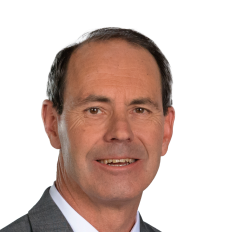
You can get medical care for a disability without medical insurance through free clinics, sliding-scale health centers, and teaching hospitals. These options allow SSDI applicants to get treated, document their conditions, and build the medical records that Social Security requires.
Many adults over 40 lose insurance when their health forces them out of work. SSDI offers a lifeline, but getting approved takes time and strong evidence. A Greenville Social Security Disability lawyer helps clients prepare their claims, gather records, and take action when SSA pushes back.
Why SSA Requires Medical Records
SSDI is a federal program that provides benefits to people who can’t work due to a disabling condition. But to qualify, you have to prove your condition prevents full-time work. That proof must come from medical records, not just your word or how you feel.
SSA needs to see documentation. This includes doctor’s visits, test results, imaging studies, and opinions from licensed providers. Without those, your claim can be denied, even if your condition is serious.
You don’t need insurance to apply for SSDI, but having access to regular care helps build the evidence SSA looks for.
No Insurance? You Still Have Options
Many SSDI applicants go without private insurance for months—or even years—before getting approved. During that time, they still need care. That’s why we provide our clients with information on local free and low-cost clinics in their area. These resources may not cover everything, but they can help you keep your medical file active while you wait.
Some options to consider include:
Community Health Centers
Federally Qualified Health Centers (FQHCs) offer primary care, chronic illness treatment, and referrals. They charge based on a sliding fee scale tied to your income. You can find one through your state’s health department or online at findahealthcenter.hrsa.gov.
Free Clinics
Local nonprofits, faith-based organizations, and medical missions sometimes offer completely free care. These clinics often focus on basics like diabetes, infections, or hypertension. Services vary by location.
Teaching Hospitals
University-affiliated hospitals often have student-run clinics or special programs for the uninsured. These programs may offer discounted visits and can be a helpful bridge for treatment and documentation.
Local Health Departments
County or city health departments may offer vaccinations, STD testing, women’s health, or chronic disease care. While not a full replacement for primary care, they can provide useful records and referrals.
Why Emergency Rooms Shouldn’t Be Your Main Option
Hospitals cannot legally turn you away if you have an emergency, but emergency rooms are not designed to provide long-term or disability-focused care. Most ER doctors won’t run the tests SSA needs to evaluate your condition, and they’re not going to follow your case over time.
You could walk away with a huge bill and not much evidence to help your SSDI claim.
Contact our social security disability lawyers today
(864) 235-0234SSA and Consultative Exams
If SSA decides they don’t have enough medical evidence, they may schedule a consultative examination (CE) with one of their doctors. These appointments are brief and often inconsistent in quality. While a CE can be part of the picture, it usually can’t replace months or years of care from your own providers.
When appropriate, we request these exams for our clients. But we also take steps to gather more detailed records and, when available, request supportive opinions from your treating doctors.
Complete a Free Case Evaluation form now
Contact UsWhy Working to “Afford Care” Can Hurt Your Claim
Many people consider taking on part-time work to pay for appointments or medications. That might seem reasonable, but for SSDI purposes, it’s risky. SSA uses your gross income (before taxes) to evaluate whether you’re performing what’s called Substantial Gainful Activity (SGA).
In 2025, the SGA limit is $1,550 per month for most people. If you earn more than that, you won’t qualify—period. Even if your income stays below that number, SSA may still use it to argue that you’re capable of working. They don’t just look at your hours or job title—they look at whether your income shows an ability to perform full-time work.
In short, there’s no safe amount of work during a claim. We never advise our clients to work part-time while applying. Even temporary or low-paying jobs can lead to a denial.
What If You’re Denied Due to Limited Medical Evidence?
SSA denies many initial claims because of “insufficient medical evidence.” That doesn’t always mean you’re not disabled; it could mean they just didn’t have enough records to see the full picture.
This is why our firm takes the lead on collecting medical records. We gather the documentation SSA needs and work to reduce the costs of obtaining it. We’ll take that step if we can get a doctor’s statement or medical opinion letter to support your claim. Every piece of evidence helps us tell your story in a way SSA can’t ignore.
If your application is denied, we can help with every administrative appeal level—starting with reconsideration, then a hearing, and then review by the Appeals Council. If the SSA process still fails, we may take your case to federal court.
Will SSDI Cover My Healthcare Once I’m Approved?
Once approved for SSDI, you’ll enter a five-month waiting period before benefits begin. After two years of receiving SSDI, you become eligible for Medicare. That helps down the road, but it doesn’t solve the immediate problem.
Medicaid is tied to income and is only available to people on Supplemental Security Income (SSI). If you’re applying for SSDI and not SSI, you likely won’t qualify for Medicaid while waiting.
That’s why it’s so important early in the process to stay connected to local clinics, free resources, and discount programs. If you’re looking to get medical care for your disability without medical insurance, we can point you toward the options available in your area.
What You Can Do Right Now
If you’re over 40, unable to work full-time, and currently uninsured, here are a few steps that can make a real difference in your SSDI claim:
- Use low-cost or free clinics: Even one appointment can produce helpful documentation. We provide resources to help you find care in your area.
- Keep track of your symptoms: A written journal can help show how your condition affects daily life.
- Don’t risk your claim by working: SSA looks at gross income, not net; even part-time earnings can cause problems.
- Start your SSDI claim: The process takes time, sometimes years, so the sooner you apply, the better.
Speak With a Social Security Disability Lawyer Servicing North Carolina
Getting medical care for a disability without medical insurance can be tough; not having SSDI makes the process harder, but not impossible. A Social Security Disability lawyer can explain your options, strengthen your file, and stay on top of all deadlines.
At Pilzer Klein, we offer guidance on finding low-cost clinics and help you collect your medical records. We’ll meet well in advance of your hearing and do everything we can to build a strong, documented case.
With over 50 years of combined experience, we’ve helped numerous people move forward with their SSDI claims. You won’t pay any fee unless we win your case, and our payment comes from a portion of your past-due benefits. Call today to speak directly with an SSDI attorney who knows how to build a strong claim.
Call or text (864) 235-0234 or complete a Free Case Evaluation form






